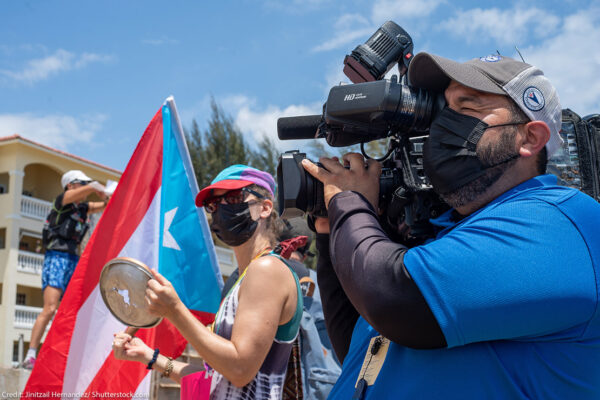Appeals Court in Mahmoud Khalil’s Case Decides Federal Court Lacks Jurisdiction Until Immigration Court Proceedings Complete
PHILADELPHIA — Today, in a split 2-1 decision, the Third Circuit Court of Appeals overturned a district court ruling that found Mahmoud Khalil’s detention and removal likely unconstitutional. Today's order does not weigh in on the core First Amendment arguments in his case but holds that the district court did not have subject matter jurisdiction over Mr. Khalil’s immigration proceedings.
The opinion does not go into effect immediately and the Trump administration cannot lawfully re-detain Mr. Khalil until the order takes formal effect, which will not happen while he has the opportunity to seek immediate review. Mr. Khalil’s legal team has several legal avenues they may pursue, including seeking review en banc from the Third Circuit Court of Appeals, which would allow all judges from the Third Circuit to weigh in.
“Today’s ruling is deeply disappointing, but it does not break our resolve,” said Mahmoud Khalil. “The door may have been opened for potential re-detainment down the line, but it has not closed our commitment to Palestine and to justice and accountability. I will continue to fight, through every legal avenue and with every ounce of determination, until my rights, and the rights of others like me, are fully protected.”
In June 2025, a federal judge district court judge Michael E. Farbiarz granted Mr. Khalil’s request for a preliminary injunction after concluding that he would continue to suffer irreparable harm if the government continued efforts to detain and deport him on the basis of Secretary of State Marco Rubio’s determination under the “foreign policy ground,” a rarely used deportation provision of the federal immigration statute, that Mr. Khali’s lawful protected speech would “compromise a compelling U.S. foreign policy interest.” Judge Farbiarz also found that Mr. Khalil was likely to succeed on the merits of his constitutional challenge to his detention and attempted deportation on the “foreign policy ground.” In a separate order, Judge Farbiarz released Mr. Khalil on bail after determining that he presented neither a danger nor a flight risk and that extraordinary circumstances justified his temporary release while his habeas case proceeded.
“Today’s decision is deeply disappointing, and by not deciding or addressing the First Amendment violations at the core of this case, it undermines the role federal courts must play in preventing flagrant constitutional violations,” said Bobby Hodgson, deputy legal director at the New York Civil Liberties Union. “The Trump administration violated the Constitution by targeting Mahmoud Khalil, detaining him thousands of miles from home, and retaliating against him for his speech. Dissent is not grounds for detention or deportation, and we will continue to pursue all legal options to ensure Mahmoud's rights are vindicated.”
The Trump administration and Department of Homeland Security illegally arrested and detained Mr. Khalil in direct retaliation for his advocacy for Palestinian rights at Columbia University. Shortly after, DHS transferred him 1300 miles away to a Louisiana detention facility — ripping him away from his then eight-months pregnant wife and legal counsel. During the 104 days he remained in ICE custody, Mr. Khalil missed the birth of his first child, among other important moments.
Mr. Khalil is represented by Dratel & Lewis, the Center for Constitutional Rights, CLEAR, Van Der Hout LLP, Washington Square Legal Services, the American Civil Liberties Union (ACLU), the New York Civil Liberties Union (NYCLU), the ACLU of New Jersey, and the ACLU of Louisiana.
The order and dissent can be read here.
Court Case: Khalil v. Trump
Affiliates: New York, New Jersey


